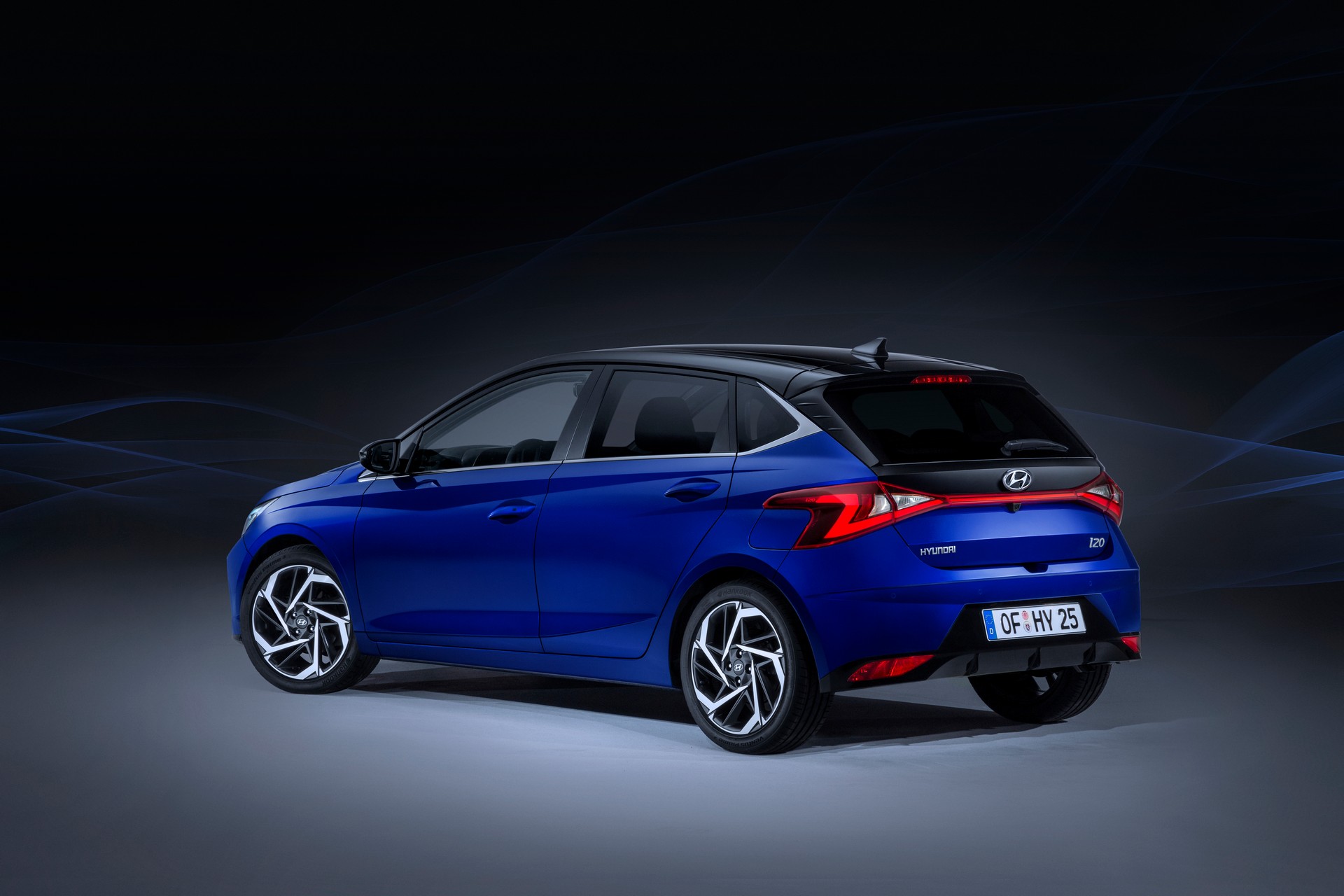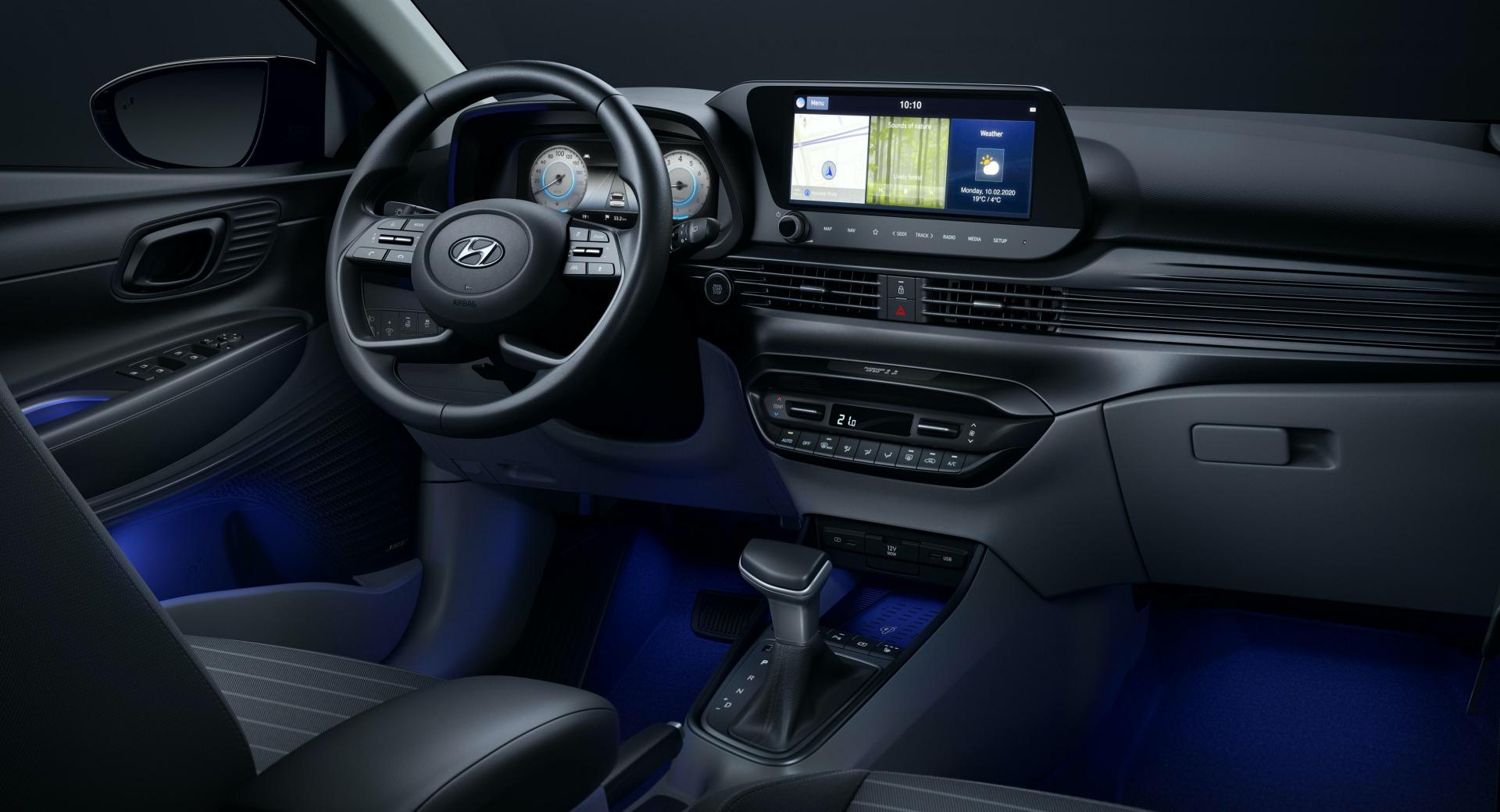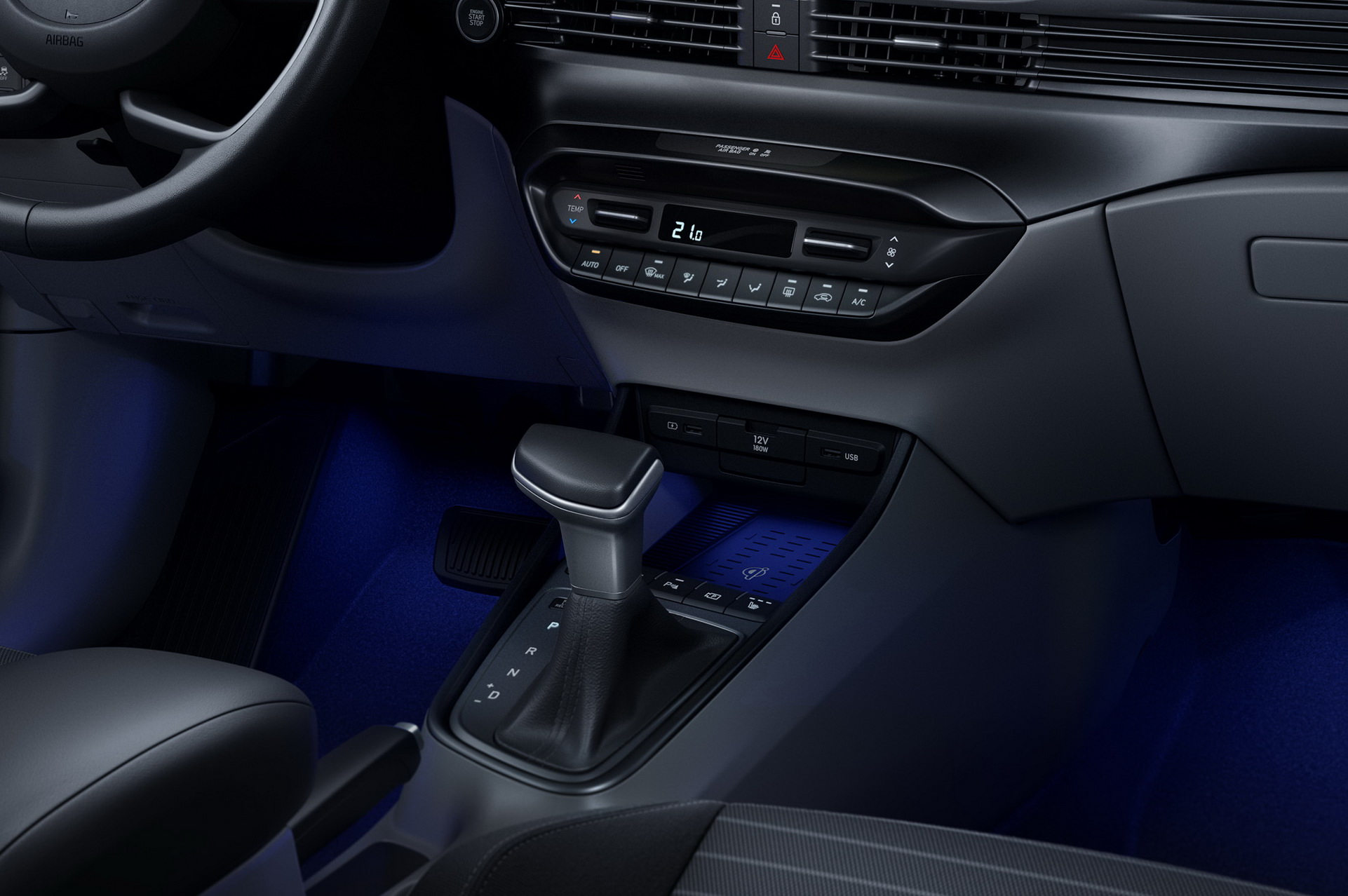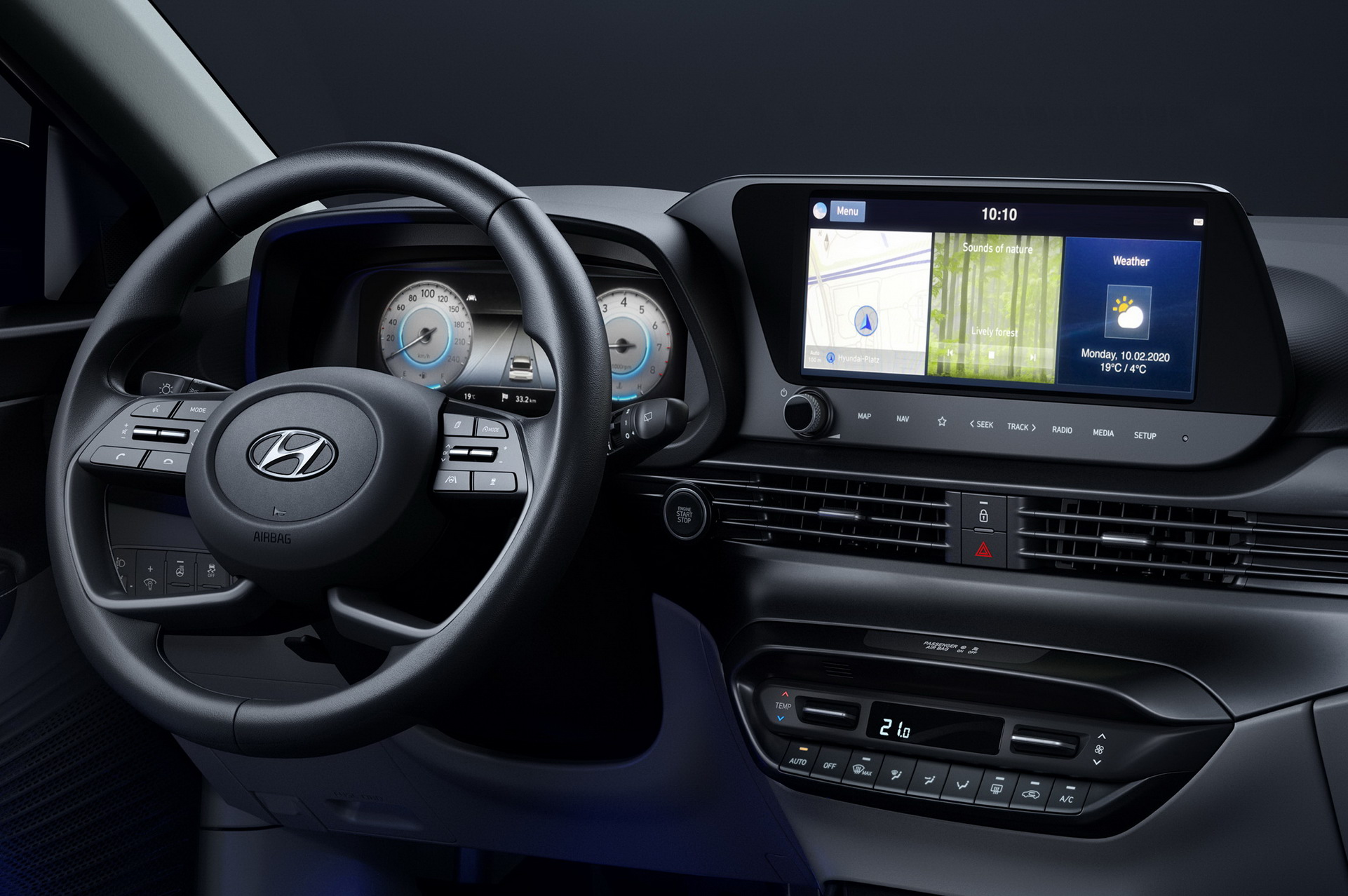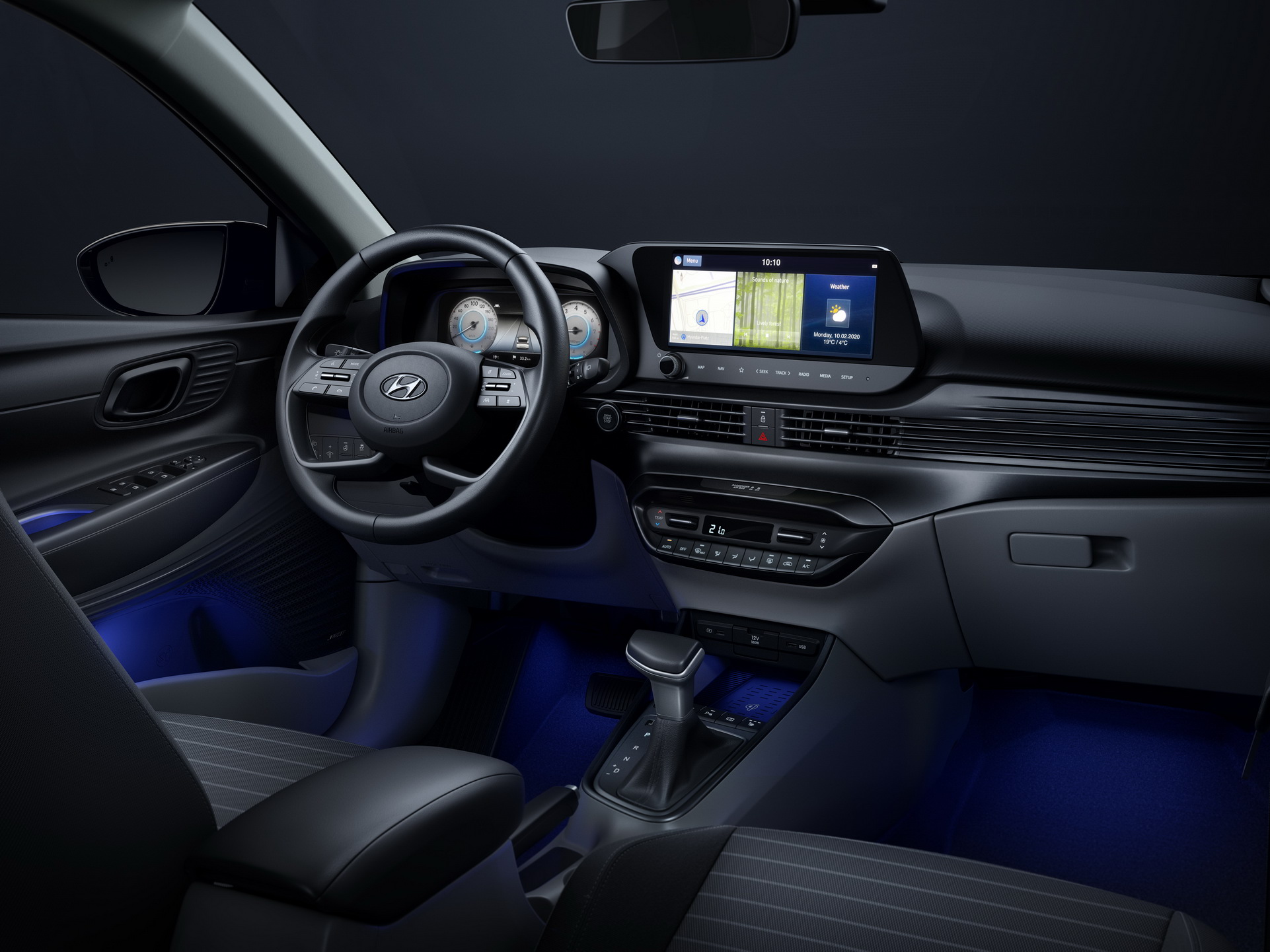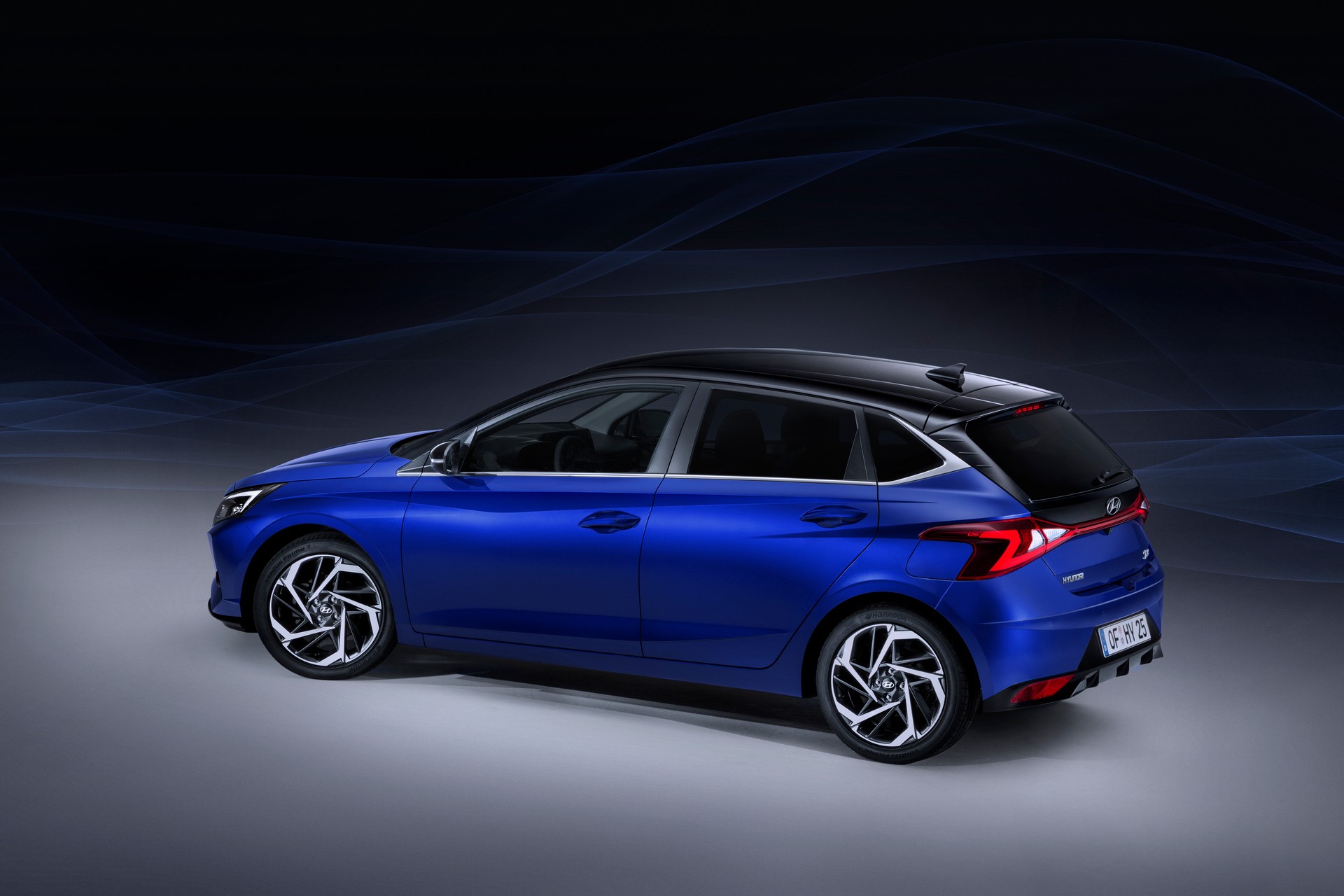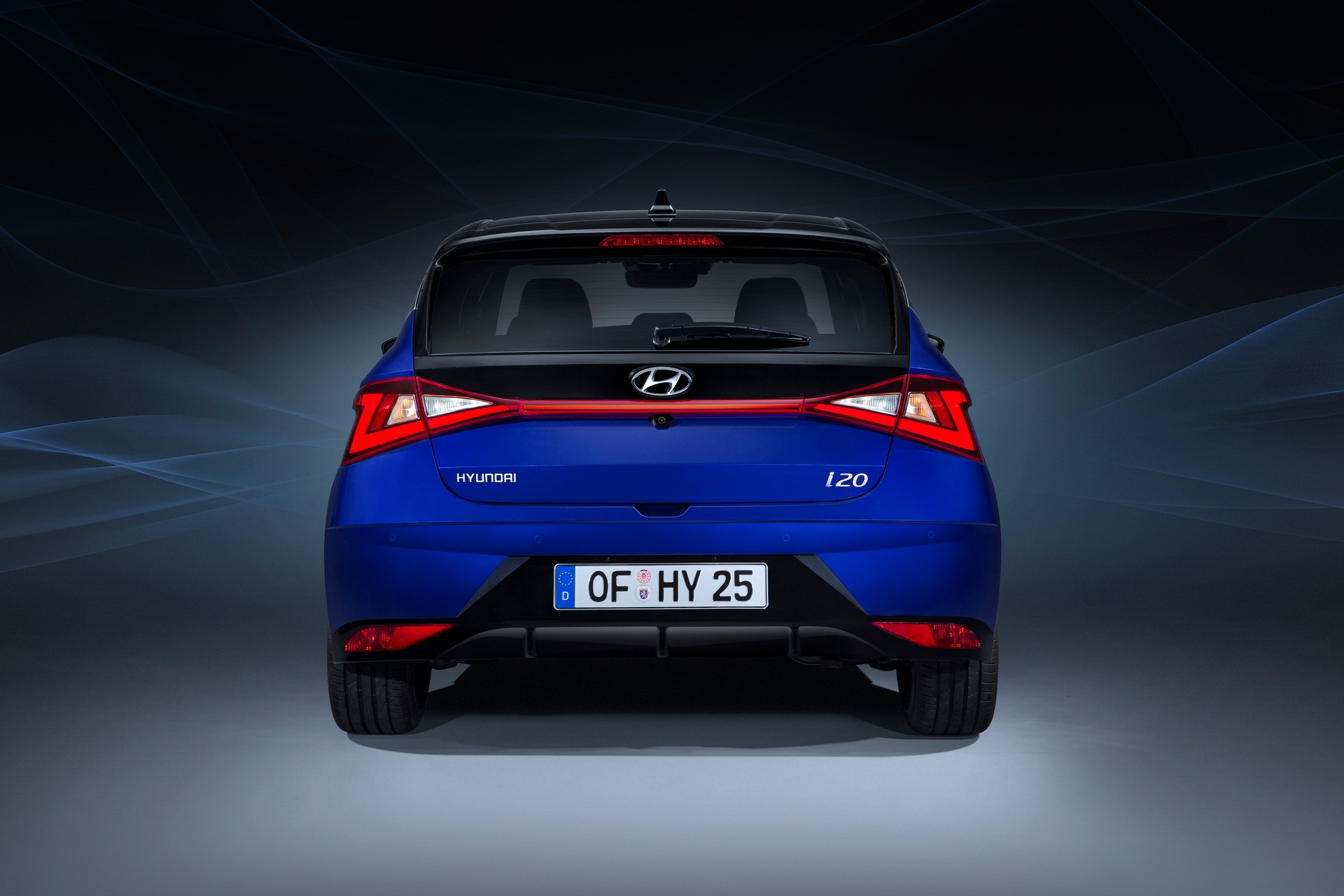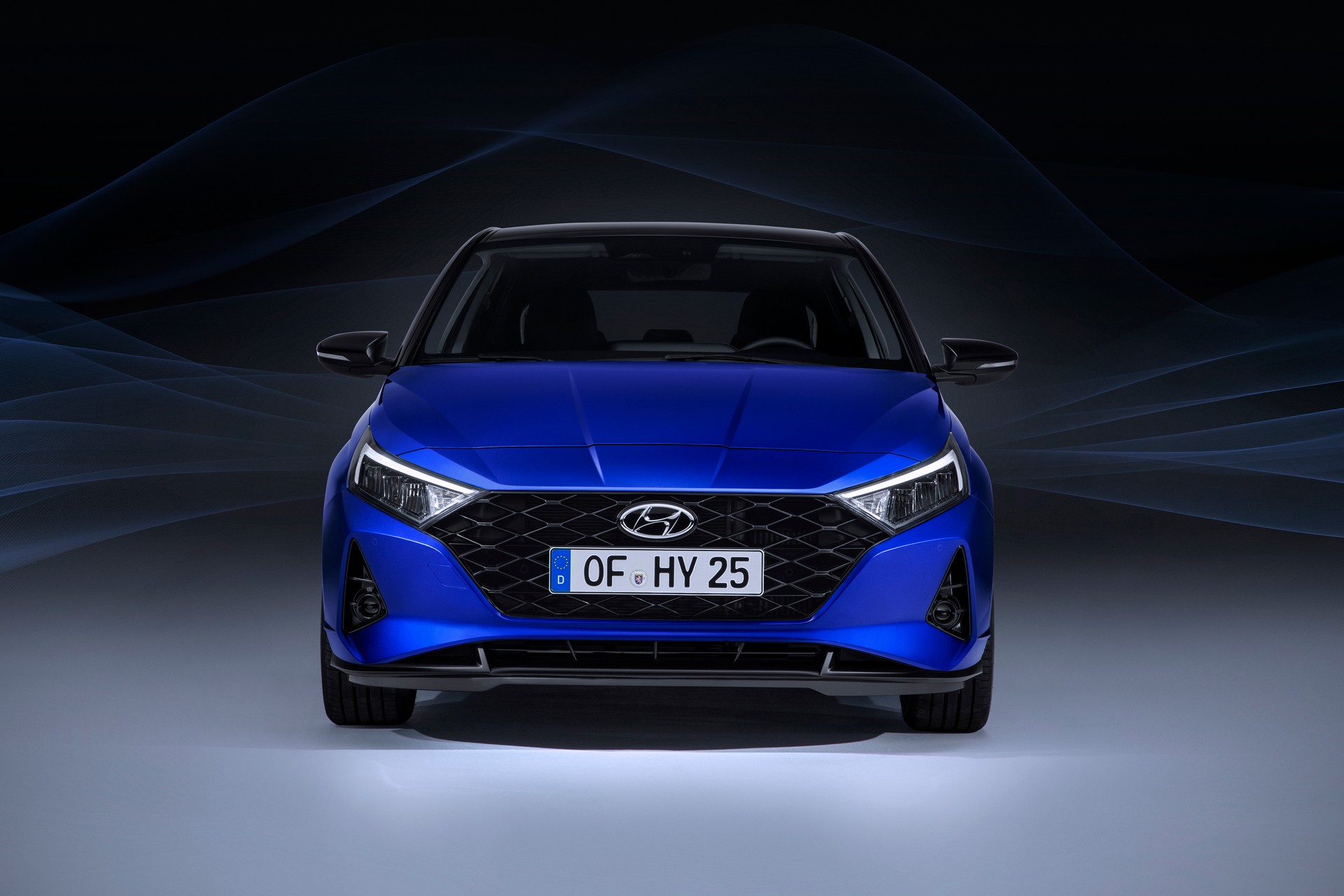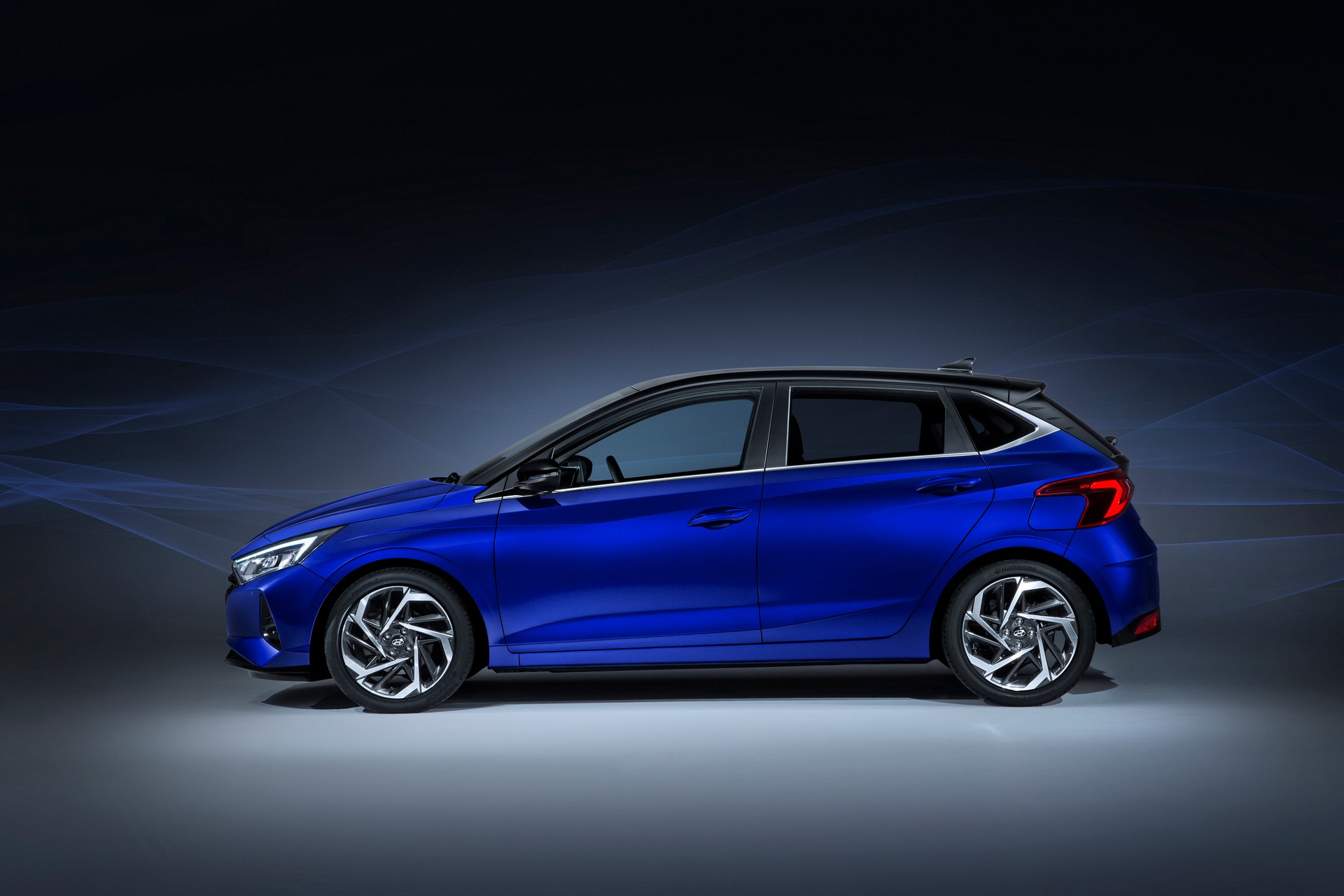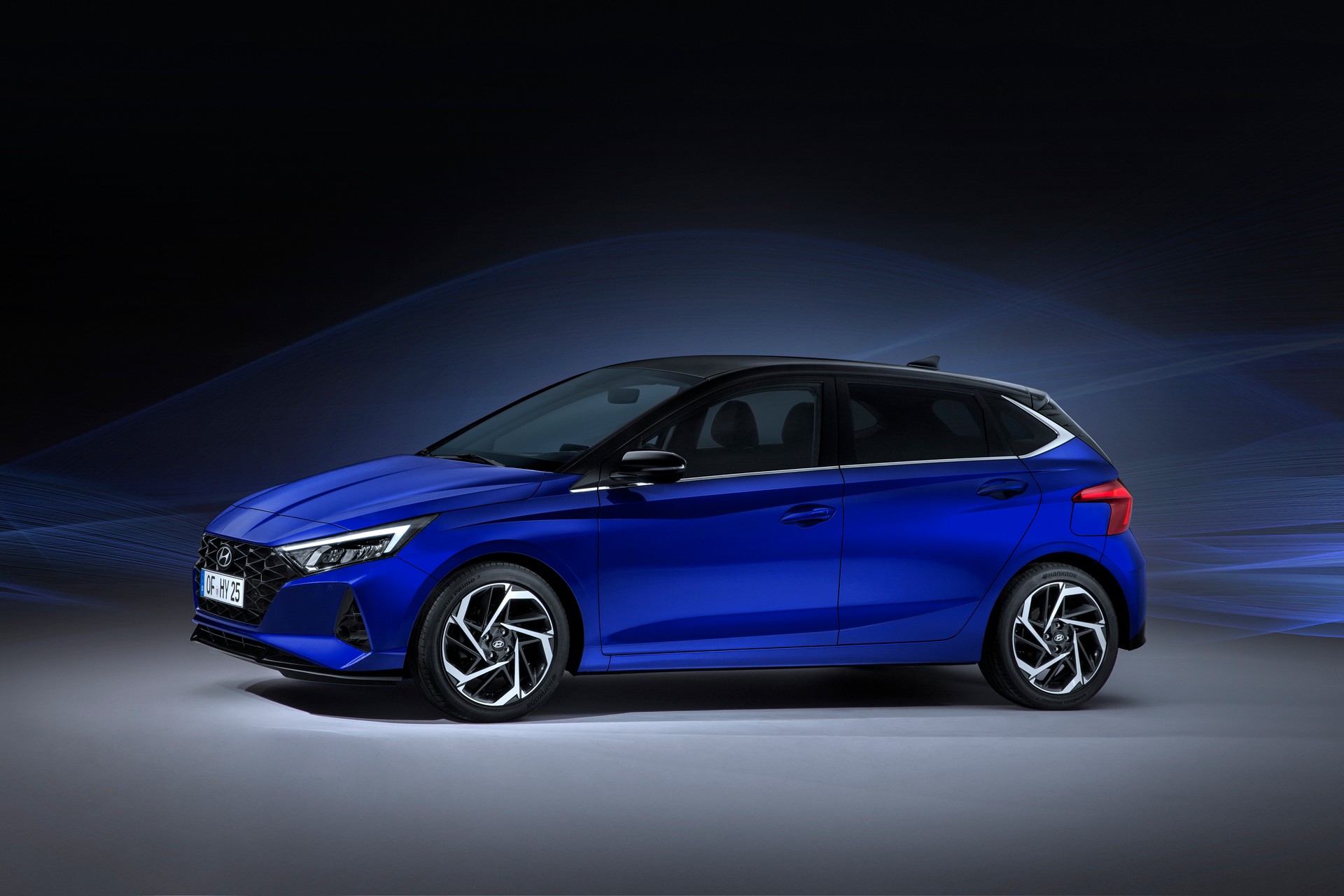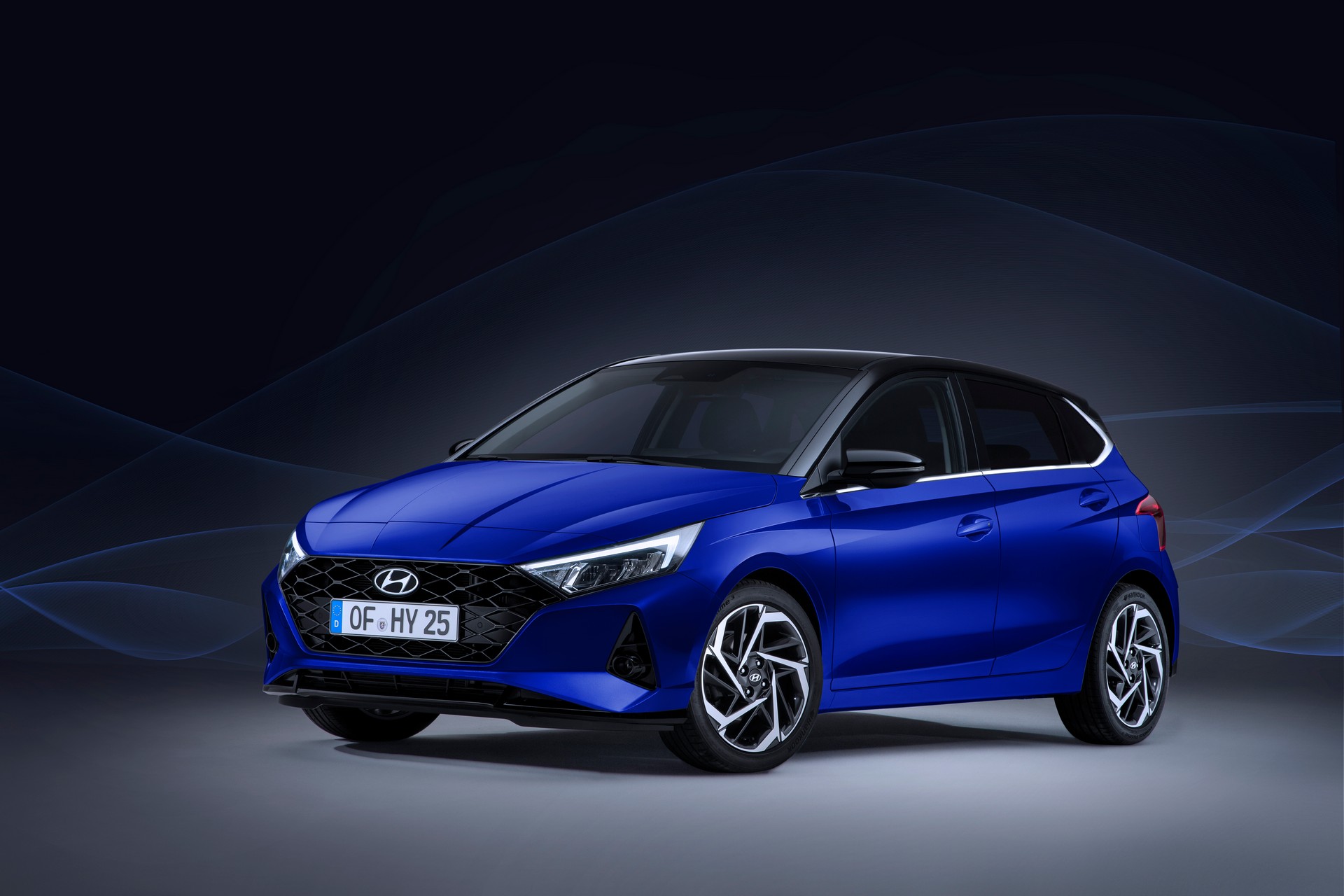The 2020 Hyundai i20 got an early unveiling yesterday, but the automaker has now released official information about the upcoming hatchback.
Set to introduced at the Geneva Motor Show, the redesigned model has a new “Sensuous Sportiness” design which looks far more upscale than its predecessor.
Starting up front, there’s a prominent grille which is flanked by sweptback headlights and sportier air intakes. The model also has a sculpted hood and dynamic bodywork with strong character lines.
Other highlights include a contrasting roof, an expanded greenhouse and a tailgate-mounted spoiler. We can also see new taillights which are connected by a thin illuminated strip.
In terms of size, the 2020 i20 is 0.2 inches (5 mm) longer, 1.2 inches (30 mm) wider and 0.94 inches (24 mm) shorter than its predecessor. The model also features a wheelbase that has been stretched an additional 0.4 inches (10 mm).
Also Read: 2020 Hyundai i20 Reinvents Itself As A Sportier Hatch With Plenty Of Character
Hyundai only released a sketch of the interior, but it promises to be far more advanced than the outgoing model as there will be a 10.25-inch digital instrument cluster and an 8- or 10.25-inch infotainment system.
Below the infotainment system is “horizontal blades” that flow into the air vents. There’s also new toggle switches, LED ambient lighting and contrasting color accents. Other highlights include a wireless smartphone charger, wireless Android Auto and Apple CarPlay support and a Bose premium audio system.
Thanks to the increased dimensions, the 2020 i20 is more accommodating than ever. Besides having increased rear legroom, the model gains 0.9 cubic feet (25 liters) of boot space and this brings the total up to 12.4 cubic feet (351 liters).
Under the hood, there’s a turbocharged 1.0-liter engine with outputs of 99 hp (74 kW / 100 PS) and 118 hp (88 kW / 120 PS). The more powerful variant has a standard 48-volt mild hybrid system, while it’s optional on the weaker version. Hyundai says the system helps to reduce fuel consumption and CO2 emissions by 3-4%.
The engine can be connected to either a six-speed manual, a seven-speed dual clutch transmission or a newly developed six-speed intelligent manual. The latter “decouples the engine from the transmission after the driver releases the accelerator, allowing the car to enter into coasting mode and saving fuel.”
In certain markets, the i20 will also be offered with an entry-level 1.2-liter four-cylinder engine. It produces 83 hp (62 kW / 84 PS) and is paired to a five-speed manual.
Last but not least, the i20 offers an assortment of driver assistance systems. Among the highlights are Blind-Spot Collision-Avoidance Assist, Forward Collision-Avoidance Assist, Lane Following Assist and Rear Cross-Traffic Collision Assist. There’s also Intelligent Speed Limit Assist, Parking Collision-Avoidance Assist, Leading Vehicle Departure Alert, Lane Keep Assist, Driver Attention Warning and High Beam Assist.





